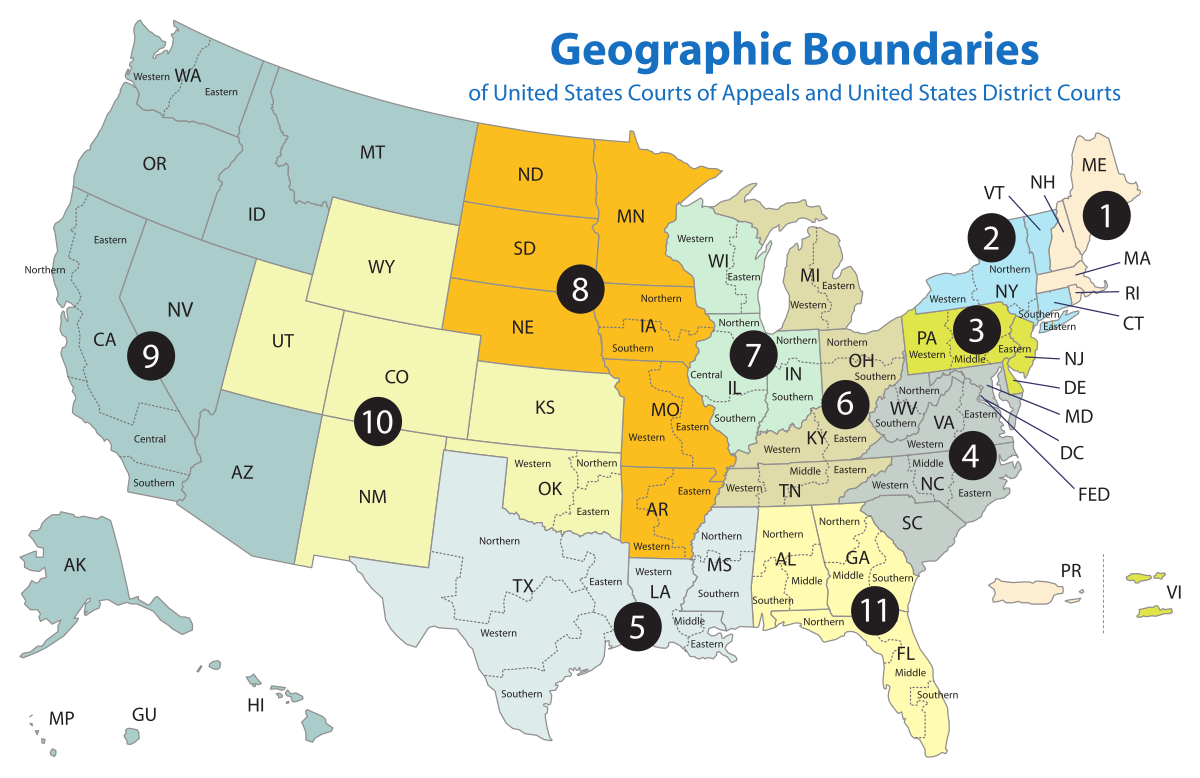Circuit Courts Forge Ahead with Modern Broadcast and Wellness Policies
Fix the Court conducted a survey of federal courts this month that shows the steps they’re taking to modernize – in stark contrast to the Supreme Court – by improving broadcast access and monitoring their judges’ health.
This comes on the heels of the D.C. Circuit‘s Dec. 2017 decision to begin livestreaming oral argument audio for all cases for which there is a request. The court’s first-ever audio livestream from its website, for an Oct. 20 case (Garza v. Hargan) on the abortion rights of an undocumented minor, came at FTC’s urging, and we followed that by requesting audio for a case concerning the FBI impersonating reporters to collect evidence, Nov. 13’s RCFP v. FBI.

The circuit’s new live audio policy was announced shortly after that, and most recently it livestreamed three cases on Jan. 18 following an FTC request.
Elsewhere, the Tenth Circuit became the last non-SCOTUS federal appeals court to permit same-day audio after its judges voted earlier this month to begin posting argument audio on its website within a day or two of a hearing. Previously, a motion had to be filed to obtain an audio file.
The Seventh Circuit will be meeting next month to discuss upgrading to same-day video and may release a report on its broadcast policy recommendations at that time. The Sixth Circuit will meet later in the spring to consider our request to update to live audio.
On the judicial wellness front, Chief Judge Roger Gregory of the Fourth Circuit has recently spoken with his counterparts in other circuits as he is looking to establish a wellness committee in his jurisdiction. The staff will soon come up with proposal, which will go before the circuit’s judicial council for approval.
In the Eighth Circuit a committee that was recently formed to study wellness policies in other circuits met earlier this month and will meet again in August to further discuss health initiatives.
“Just as lower courts look to the Supreme Court for how to apply precedent, the justices should also be setting the tone on transparency,” FTC executive director Gabe Roth said. “They’re not, so thankfully the other federal appeals courts have picked up the slack.
FTC will be working with its partners and allies to request live audio for arguments in the high court’s travel ban case, scheduled for this spring.